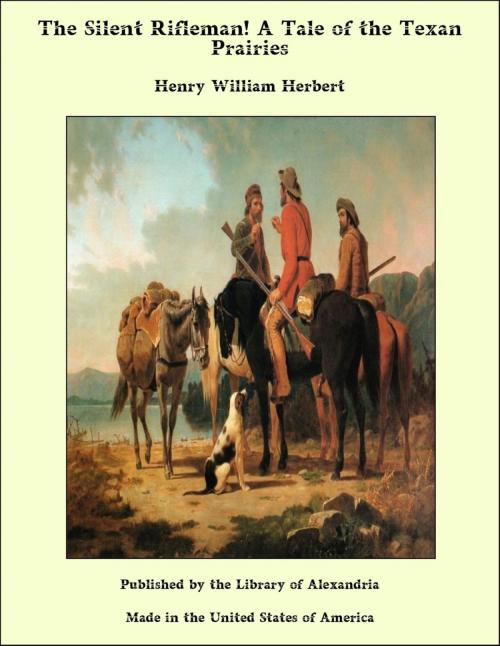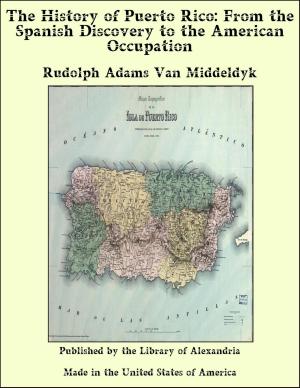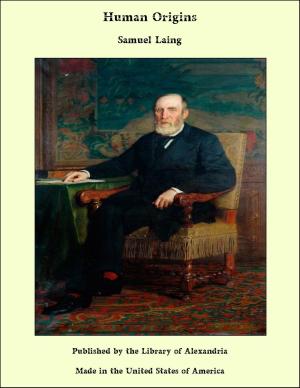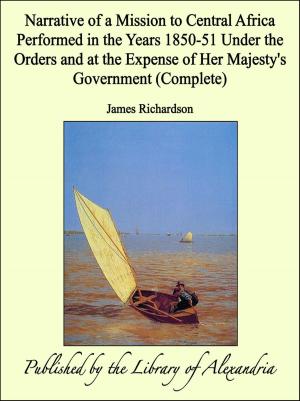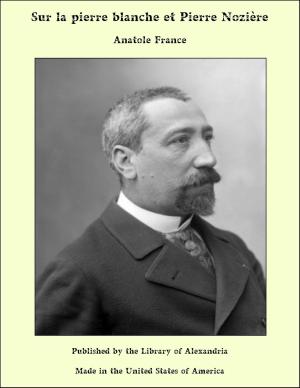The Silent Rifleman! A Tale of the Texan Prairies
Nonfiction, Religion & Spirituality, New Age, History, Fiction & Literature| Author: | Henry William Herbert | ISBN: | 9781465620118 |
| Publisher: | Library of Alexandria | Publication: | March 8, 2015 |
| Imprint: | Language: | English |
| Author: | Henry William Herbert |
| ISBN: | 9781465620118 |
| Publisher: | Library of Alexandria |
| Publication: | March 8, 2015 |
| Imprint: | |
| Language: | English |
It wanted an hour or two of sunset on a lovely evening in the latter part of September, when a single horseman might have been seen making his way to the westward, across the high dry prairie land, which lies between the upper portion of the river Nueces and the Bravo del Norte. He was a small, spare man, of no great personal power, but of a figure which gave promise of great agility and capability of enduring fatigue, the most remarkable feature of which was the extraordinary length of his arms. His countenance, without being in the least degree handsome, was pleasing and expressive. A short, heavy English rifle, carrying a ball of twelve to the pound, was slung by a black leather belt across his shoulder, the braided strap which supported his large buffalo-horn powder flask and bullet pouch of otter skin crossing it on his breast. From a leather girdle, which was buckled about his waist, he had hung a long, straight, two-edged sword in a steel scabbard with a silver basket hilt on the left side, which was counterbalanced by a long, broad-bladed hunting knife with a buck-horn hilt, resting upon his right hip. There were holsters at the bow of his large Mexican saddle, containing a pair of fine duelling pistols with ten inch barrels; and in addition to these, there was suspended from the pummel a formidable hatchet with a bright >steel head and a spike at the back, like an Indian tomahawk, but in all respects a more ponderous and superior instrument. On the croupe of his horse, and attached to the cantle of the saddle, he carried a small valise of untanned leather, with a superb Mexican blanket of blue and scarlet strapped upon it, and a large leathern bottle with a horn drinking-cup swinging from it on one side; while to the other was fastened a portion of the loin of a fat buck, which had fallen in the course of the morning by the rifle of the traveller. The horse which carried this well-appointed rider was a dark-brown thorough-bred. At length, when the sun was no longer above three times the width of his own disc from the level line of the lowest plain, he set his spurs to his horse, and put him from the high slashing trot which he had hitherto maintained, into a long slinging gallop, which carried him over the ground at the rate of some sixteen miles the hour. After he had ridden at this rate for thirty or forty minutes, he reached the brow of one of the low rolling waves of earth, which constitute the surface of the prairie, and thence saw the land falling away in a long gentle slope for some six miles toward the west, at which distance it was bounded by a long continuous line of hills, whose range seemed interminable. At the base of this range appeared a dense line, looking sombre enough at that distance, but which the experienced eye of the horseman well knew indicated a heavy growth of timber—perhaps a deep forest, and, within its shadowy depths, a wide and never-failing stream.
It wanted an hour or two of sunset on a lovely evening in the latter part of September, when a single horseman might have been seen making his way to the westward, across the high dry prairie land, which lies between the upper portion of the river Nueces and the Bravo del Norte. He was a small, spare man, of no great personal power, but of a figure which gave promise of great agility and capability of enduring fatigue, the most remarkable feature of which was the extraordinary length of his arms. His countenance, without being in the least degree handsome, was pleasing and expressive. A short, heavy English rifle, carrying a ball of twelve to the pound, was slung by a black leather belt across his shoulder, the braided strap which supported his large buffalo-horn powder flask and bullet pouch of otter skin crossing it on his breast. From a leather girdle, which was buckled about his waist, he had hung a long, straight, two-edged sword in a steel scabbard with a silver basket hilt on the left side, which was counterbalanced by a long, broad-bladed hunting knife with a buck-horn hilt, resting upon his right hip. There were holsters at the bow of his large Mexican saddle, containing a pair of fine duelling pistols with ten inch barrels; and in addition to these, there was suspended from the pummel a formidable hatchet with a bright >steel head and a spike at the back, like an Indian tomahawk, but in all respects a more ponderous and superior instrument. On the croupe of his horse, and attached to the cantle of the saddle, he carried a small valise of untanned leather, with a superb Mexican blanket of blue and scarlet strapped upon it, and a large leathern bottle with a horn drinking-cup swinging from it on one side; while to the other was fastened a portion of the loin of a fat buck, which had fallen in the course of the morning by the rifle of the traveller. The horse which carried this well-appointed rider was a dark-brown thorough-bred. At length, when the sun was no longer above three times the width of his own disc from the level line of the lowest plain, he set his spurs to his horse, and put him from the high slashing trot which he had hitherto maintained, into a long slinging gallop, which carried him over the ground at the rate of some sixteen miles the hour. After he had ridden at this rate for thirty or forty minutes, he reached the brow of one of the low rolling waves of earth, which constitute the surface of the prairie, and thence saw the land falling away in a long gentle slope for some six miles toward the west, at which distance it was bounded by a long continuous line of hills, whose range seemed interminable. At the base of this range appeared a dense line, looking sombre enough at that distance, but which the experienced eye of the horseman well knew indicated a heavy growth of timber—perhaps a deep forest, and, within its shadowy depths, a wide and never-failing stream.
